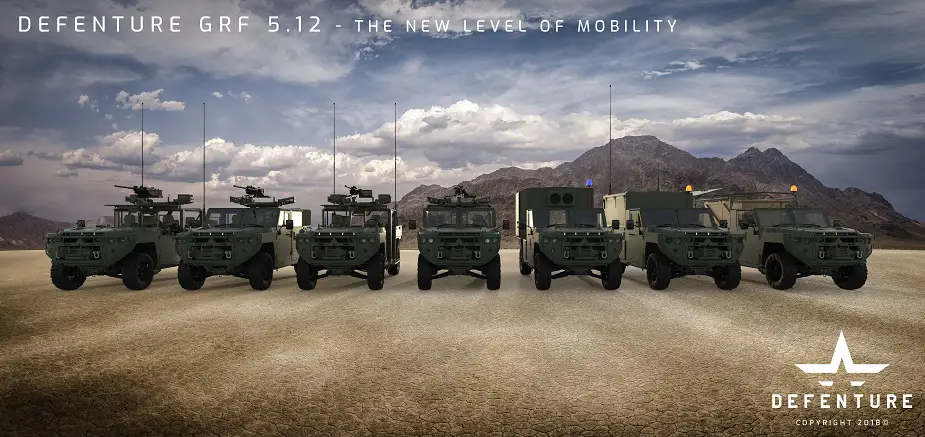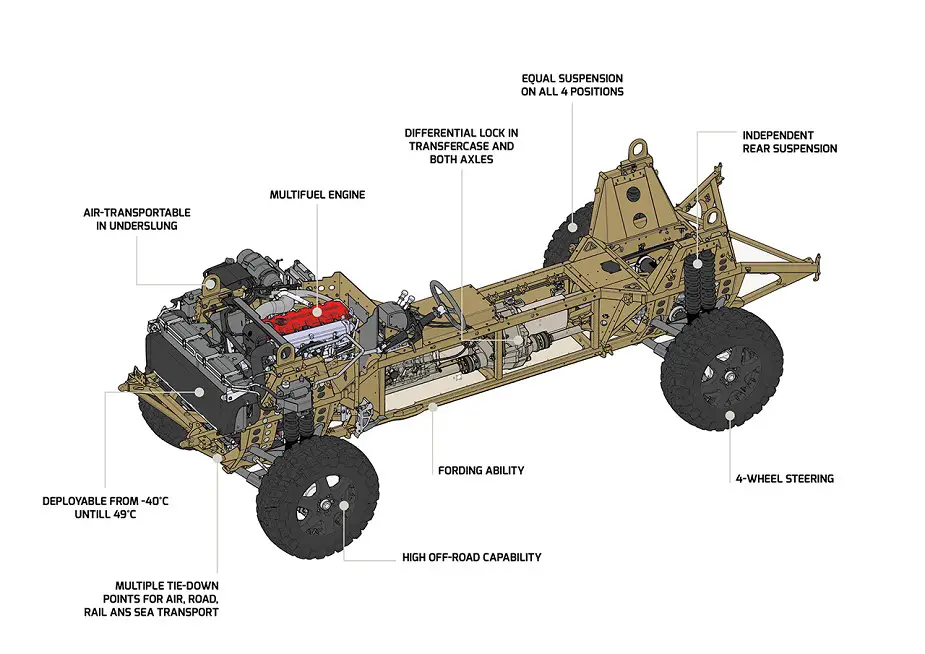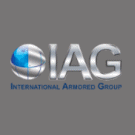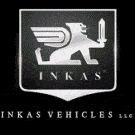BAAINBw, the German Armed Forces procurement organisation providing the Bundeswehr with efficient and safe equipment, awarded Defenture the contract to develop and produce tactical vehicles for the German Kommando Spezialkräfte (KSK, Special Forces Command,) of the Bundeswehr. It concerns the delivery of maximum 80 vehicles in various configurations.
Follow Army Recognition on Google News at this link

Lightweight, powerful with outstanding off-road characteristics; the GRF 5.12 has a large operational payload whilst the Defenture Modular Design Principle (DMDP) technique allows the base platform to be configured into any number of bodywork variants, in order to fit the different requirements of missions on one central platform(Picture source: Defenture)
The Kommando Spezialkräfte requires a mobility platform for various operations dedicated and fully developed for specific military end users. Platform of choice is The Defenture Mammoth, a 9 tons vehicle, based on the proven GRF 5.12 platform. This platform is also in use by for example the Dutch Korps Commandotroepen (SOF) and other countries. The modular structure of the all-wheel drive, highly mobile vehicles enables optimal preparation for the intended end use.
The programs AGF 2 (Medium Special Forces Reconnaissance and Combat Vehicle (Mittleres Aufklärungs- und Gefechtsfahrzeug Spezialkräfte)) and UFK (Medium Tactical Special Forces Support Vehicle (Mittleres taktisches Unterstützungsfahrzeug Kommando Spezialkräfte)) comprise of the delivery of four prototype vehicles in various configurations. Each platform will be equipped with various systems like, among others, shot detection systems, radio’s, long and short range EO, weapon mounts and internal communication systems. In close collaboration with industry partners and the Kommando Spezialkräfte, Defenture will tailor the four vehicles and integrate all the required systems. Based on thorough end user testing, final configurations will be set as the start of the assembly of a complete series, comprising of a maximum of 80 vehicles. Together with its industry partners, Defenture will also support the Bundeswehr with service, support and training throughout the complete lifetime of the vehicles.

The GRF 5.12 platform with its ultra-strong central spine chassis allows Defenture to create military mobility at the highest level with their Ground Force Vehicle (Picture source: Defenture)
Henk van der Scheer, CEO Defenture: "We are very honoured with this prestigious order. Developing and building these vehicles for the German Special Forces is a recognition of all the energy Defenture has put into developing the best vehicle for these specialists over the past years. We look forward to the close cooperation with the Kommando Spezialkräfte, the BAAINBw and our international industry partners".
The granted contract is Defenture’s next international awarded program. Earlier programs have been executed for the Netherlands, Switzerland and Germany. For these countries dedicated lightweight tactical vehicles have been delivered in various configurations. The vehicles in use by these nations are all based on the GRF 5.12 chassis, especially designed for dedicated military use, delivering unrivalled performance under all circumstances. The GRF 5.12 chassis is based on the Defenture Modular Design Principle (DMDP). This technique allows this chassis to be configured into any variant of mission ready configuration in the range of a gross vehicle weight from 3 to 10 tons. The DMDP allows users to achieve the highest level of family formation of vehicle fleets which also contributes to interoperability between user nations.
Defenture’s unique design and process driven manufacturing processes provides opportunities for close cooperation with local partners to ensure strong and sustainable partnerships. Strong partnerships which contributes to local prosperity and economic growth and also minimize lifecycle costs and lead-times.














